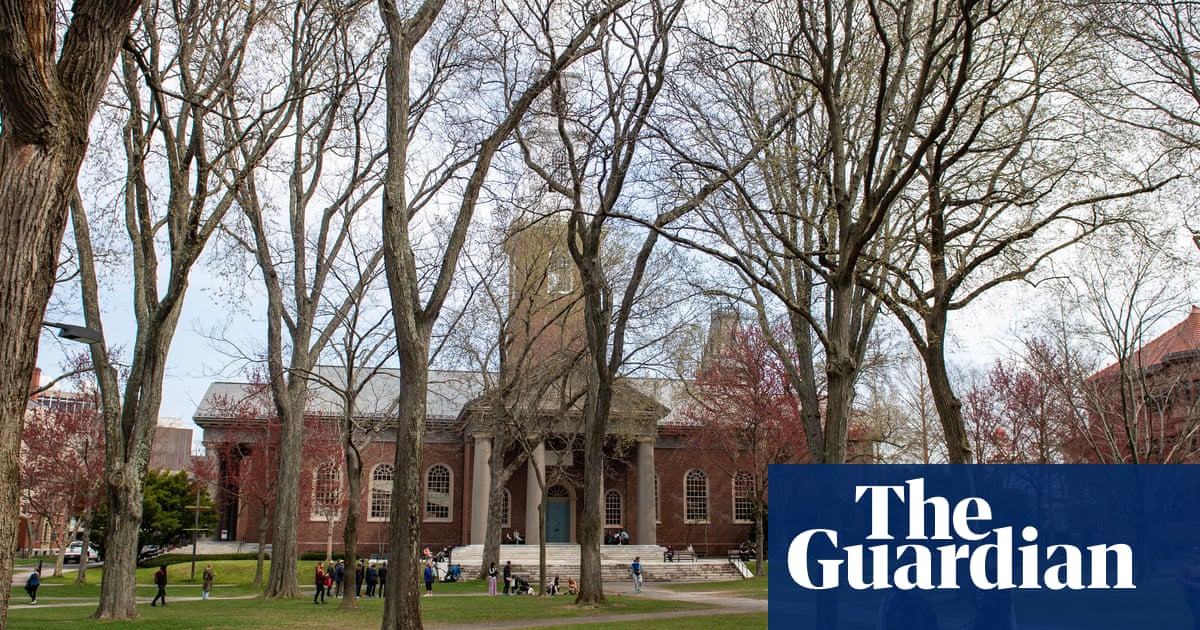Labor unions representing undergraduate, graduate, postdoctoral and academic workers atHarvard Universitycriticized theTrump administration’s efforts topreventHarvard from enrolling foreign students, calling it “one of the single largest concentrated deportation threats against a unionized workforce in our nation’s history”.
A judge on 29 May extended an injunction blocking the Trump administration from revoking Harvard’s ability to host international students, which wouldaffect5,000 current students and 2,000 graduates in a post-graduation work programme. Some 4,000 student workers represented by unions at Harvard who would be impacted.
“The Trump’s administration’s threat to international scholars is a huge attack on thousands of UAW-represented workers on Harvard’s campus. We are seeing escalations against immigrant workers across the country and this is no different,” said the director of the United Auto Workers Region 9A, Brandon Mancilla. “The labor movement must see these attacks as what they are – an attempt to divide workers and create false enemies in a time of rampant corporate greed.”
Sudipta Saha, a fourth-year PhD candidate in population health sciences at Harvard who holds citizenship with Canada and Bangladesh, and is a member of the executive board of the Harvard Graduate Students Union, explained the fears the move has instilled in international student workers on campus who are worried about their visa status, education and research.
“Even if Harvard wins this particular case, the broader authoritarian turn that this represents is still being successful, because a lot of people are worried about whether they can actually speak out,” said Saha. “International students who have been asking me, have been asking each other, is it safe to go on the record? Is it safe to even write an op ed? And I think when people are asking questions like that, that kind of shows how already, how successful this kind of crackdown has been.”
“We do a lot of vital work. There are people working on robotics, cancer drugs and Alzheimer’s research. All of that is impacted when they’re forced to stop,” he added. “All of this research work is tangled with a ton of other industries that are not necessarily within the university, from development of these pharmaceutical drugs to research equipment, all of those things are affected if they were forced to stop their work and leave.”
The Trump administration has alsohaltedinterviews for all student exchanges and visas and secretary of state Marco Rubio hasvowedto begin revoking visas of students from China with ties to the China Communist party or working in critical fields.
Ellen Yi, a Rhodes scholar from China who was admitted to a doctoral program at Harvard, was set to join Harvard in fall 2025, but is now looking for different options.
“I feel a strong sense of insecurity and uncertainty. The policy keeps swinging back and forth and we don’t know what is the next step of the government,” said Yi. “I’m very pessimistic about the future and I’m looking for some safer options.”
In response to Rubio’s threats of revoking visas from Chinese students, she said: “I was not very surprised, but still very disappointed, frustrated and kind of panicked, because the policy statement was very unclear,” adding it remains unclear how theTrump administrationwill define connections to the Chinese Communist party or critical fields.
“I find this absurd,” said Ozan Baytaş, a postdoctoral researcher at Harvard Medical School from Turkey. “There’s a clear attack on the universities, freedom of speech, academic freedom and science, and there’s a clear intention to purge the current system of many non-citizen workers who are very talented.”
He cited Maureen Martin, the director of immigration services at Harvard, who wrote in acourt declarationthat the revocation notice has made students afraid to attend graduation ceremonies, have forced international students to reconsider their futures at Harvard and inquire about transferring, and that incoming international students have already reported experiencing issues in obtaining visas.
“Many internationals, non-citizen workers are afraid to speak out. Many want to leave. Many don’t want to come back to the US, because they think their future plans may be interrupted by a whimsical move from the government at any moment,” Baytas added. “The best of the best in the world wants to come here to Harvard because there are opportunities. There are many good research labs, and they simply won’t come here, and the science here will suffer.”
Despite the policies and rhetoric coming from the Trump administration, Baytaş argued that student workers and unions, in and out of the legal system, intend to fight back.
“People in the US here say stand up, fight back, so I am confident academic freedom will rise,” he concluded. “I’m very hopeful, despite all the failings of the current administration.”
Harvard and the White House did not respond to multiple requests for comment.
